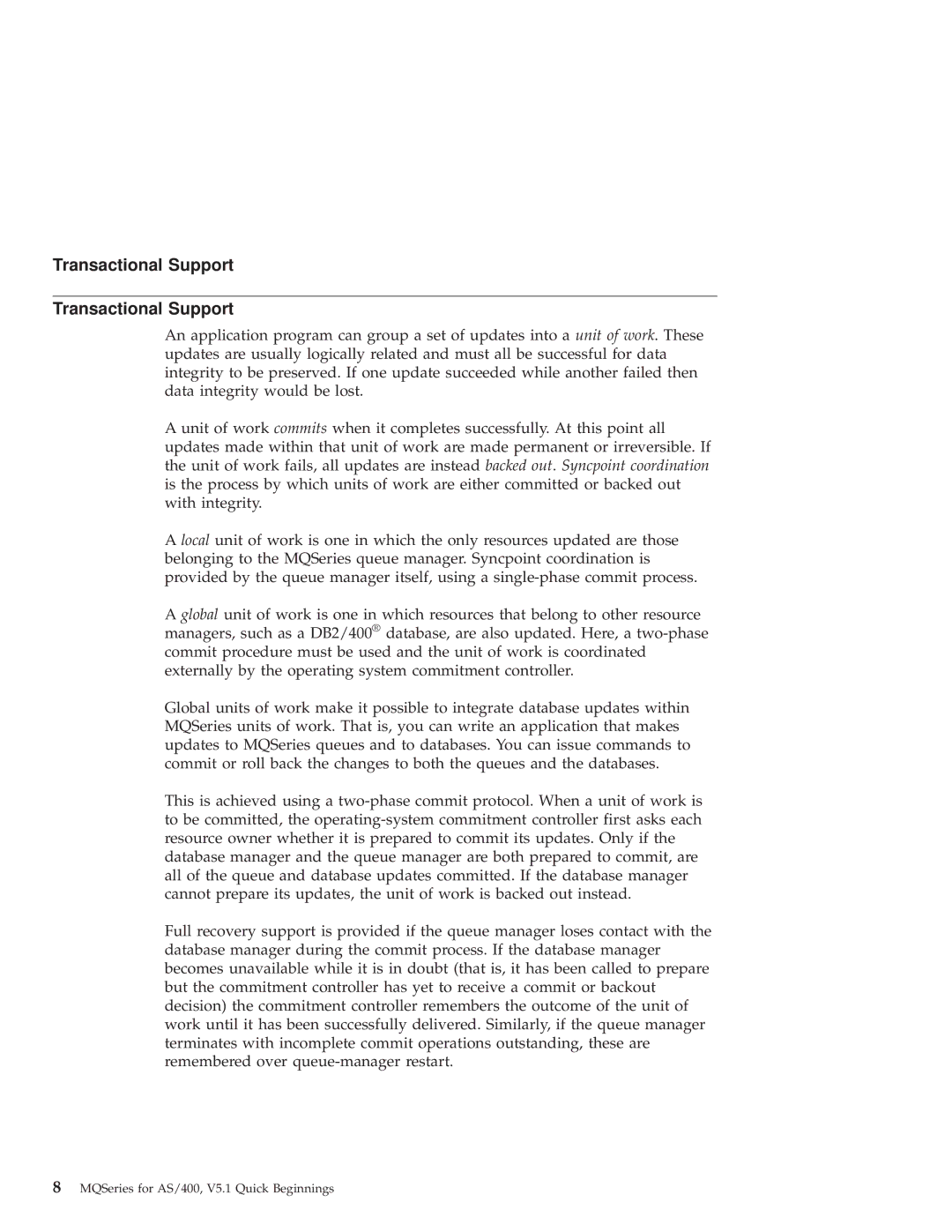Transactional Support
Transactional Support
An application program can group a set of updates into a unit of work. These updates are usually logically related and must all be successful for data integrity to be preserved. If one update succeeded while another failed then data integrity would be lost.
A unit of work commits when it completes successfully. At this point all updates made within that unit of work are made permanent or irreversible. If the unit of work fails, all updates are instead backed out. Syncpoint coordination is the process by which units of work are either committed or backed out with integrity.
A local unit of work is one in which the only resources updated are those belonging to the MQSeries queue manager. Syncpoint coordination is provided by the queue manager itself, using a
A global unit of work is one in which resources that belong to other resource managers, such as a DB2/400® database, are also updated. Here, a
Global units of work make it possible to integrate database updates within MQSeries units of work. That is, you can write an application that makes updates to MQSeries queues and to databases. You can issue commands to commit or roll back the changes to both the queues and the databases.
This is achieved using a
Full recovery support is provided if the queue manager loses contact with the database manager during the commit process. If the database manager becomes unavailable while it is in doubt (that is, it has been called to prepare but the commitment controller has yet to receive a commit or backout decision) the commitment controller remembers the outcome of the unit of work until it has been successfully delivered. Similarly, if the queue manager terminates with incomplete commit operations outstanding, these are remembered over
